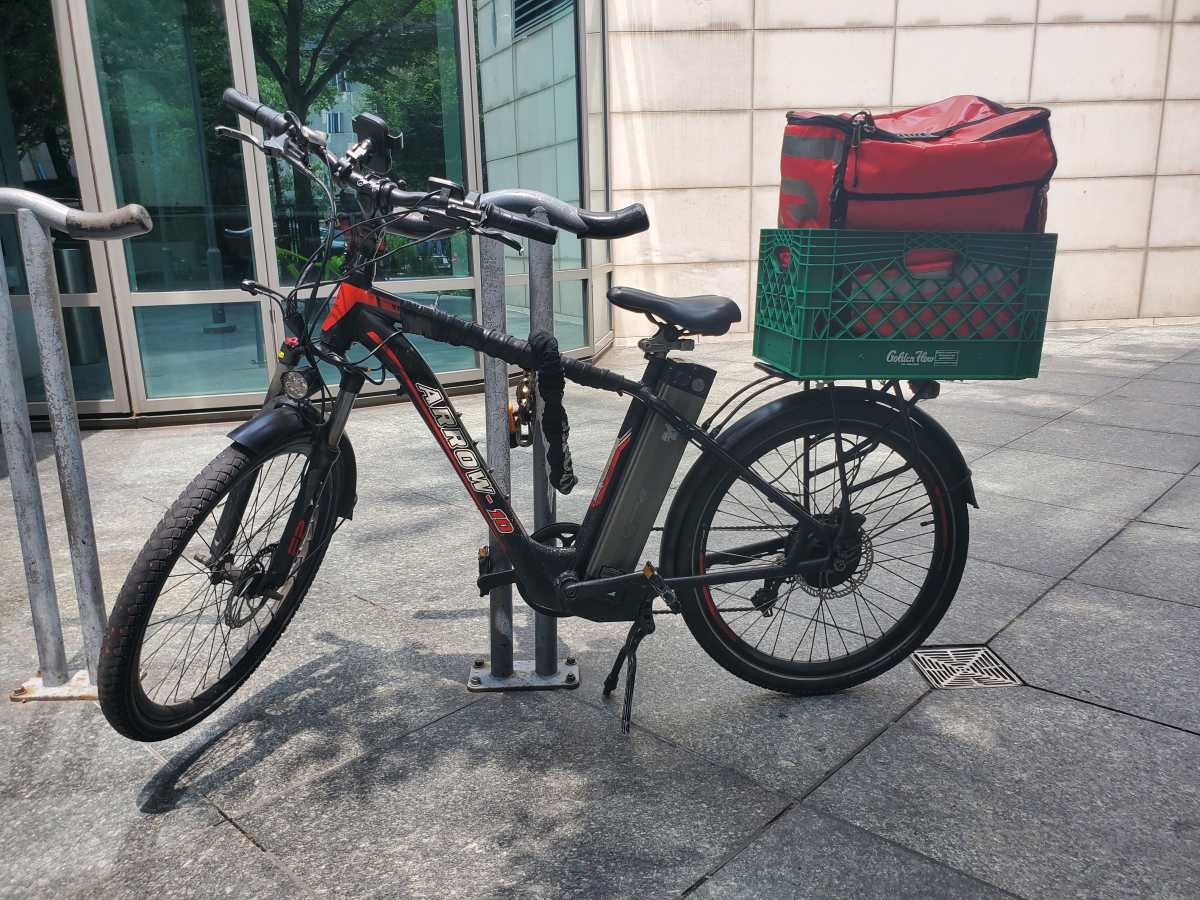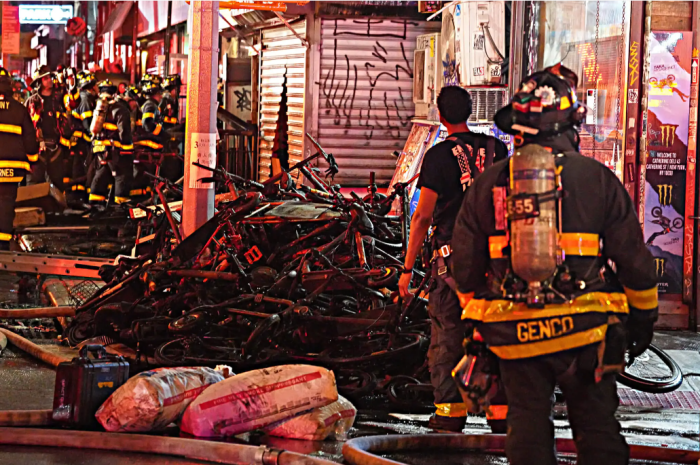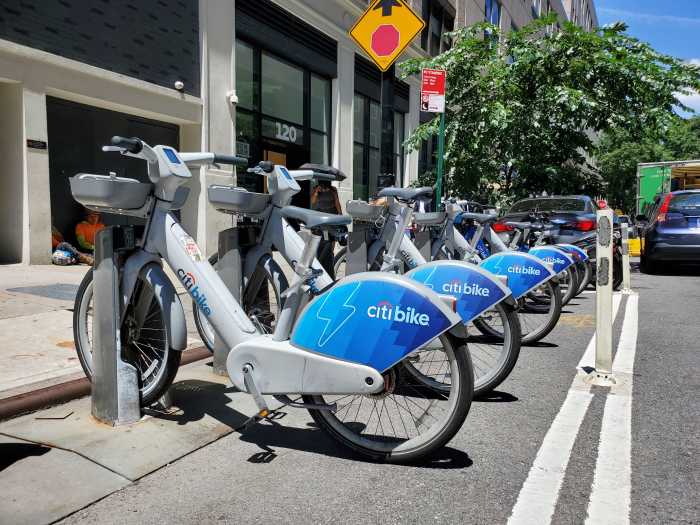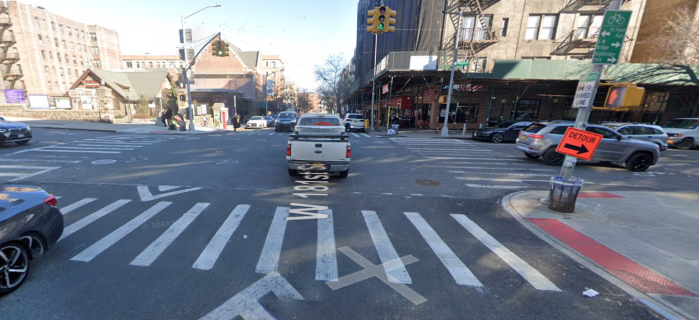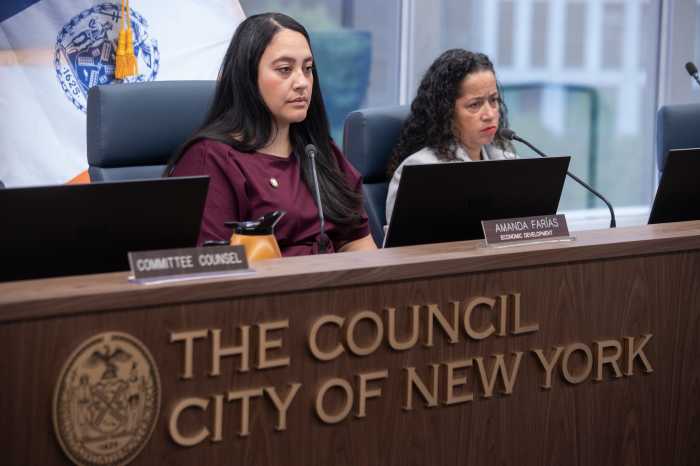The Adams administration wants to make it easier for landlords to install e-bike charging equipment on the sidewalk outside their buildings to prevent indoor charging that can cause fire hazards.
Through the new “Safe Charging Accelerator” program, the city’s Department of Transportation (DOT) is proposing a new rule intended to expedite the approval process for new charging equipment on the sidewalk — potentially allowing businesses all over the city to start allowing New York’s 65,000 delivery cyclists to safely charge their vehicles outdoors.
“This is a huge change. This is a big change. This is a big deal today,” Mayor Eric Adams said at a Monday press conference in Manhattan. “And it’s going to help make safe charging accessible to all New Yorkers and provide alternatives to risky charging sites that block exits.”
The move comes in the wake of 18 New Yorkers losing their lives in fires last year caused by exploding e-bike batteries, many of which were being charged unsafely within apartment buildings. That was up from zero deaths just three years earlier; the number of fires suspected to be caused by e-bike’s lithium-ion batteries grew from 44 in 2020 to 268 in 2023, though the rate is down this year.

Zoning code changes will not be required, administration officials attested. Instead, the proposed rule would allow landlords to seek “revocable consent” to place a charging station on the sidewalk outside their property, where they would be allowed to levy fees for cyclists to charge their batteries or swap them out. That comes months after the administration unveiled a pilot program with several companies demonstrating their charging tech for free at Cooper Square in Manhattan.
Revocable consent — which gives private operators the right to take public space for private uses — would cost landowners $25 annually, according to the text of the rule.
A hearing on the rule will take place on Aug. 21, and by the end of the year, the administration expects to begin accepting applications, which would be subject to review by the FDNY and Buildings Department.
The administration is also set to launch a trade-in program to swap cheap, uncertified batteries that are liable to explode and are used by many delivery workers for safe, certified ones; and rolling out a public awareness campaign aimed at educating delivery workers and others on the potential dangers of lithium-ion batteries.

The prevalence of battery fires has led many landlords to start banning e-bikes on their premises, and consequently, many delivery workers have started switching to mopeds, which must be registered by law but are frequently driven illegally.
Mubakar, a deliverista in the East Village, told amNewYork Metro in Spanish that he used to work on an e-bike but switched “because I wasn’t in a position to charge the e-bike.”
Adams, meanwhile, has said he believes e-bikes are “not the enemy” but must be integrated properly into the larger transportation system.
Hizzoner said this year he wants to create a new city agency called the “Department of Sustainable Delivery,” aimed at consolidating the various policy issues surrounding e-bikes into one office. Meera Joshi, the deputy mayor for operations, said the agency’s creation depends on the city’s getting the authority to license app companies that dispatch delivery workers; the administration is working with the City Council on legislation to achieve that.
“Once the city has the authority to license the companies, it’s a game-changer in terms of enforcing safety requirements,” said Joshi.
Read More: https://www.amny.com/nyc-transit/



